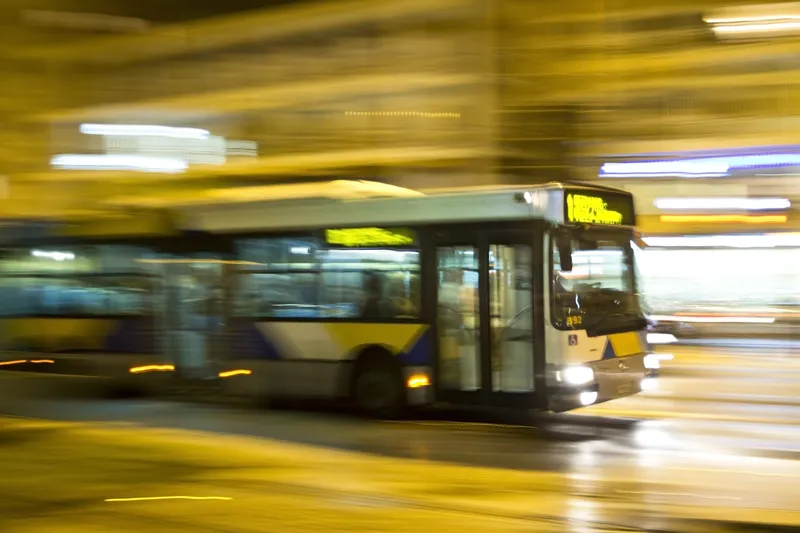According to Nathan Marsh, Smart Transport director at EY, a new Bus Services Bill included today’s Queen’s Speech could herald just the beginning of a journey to smarter travel and paves the way for cities and regions to reap the benefits of a London-style network.
The speech also included a range of measures to modernise the UK’s economy, such as a Modern Transport Bill which included legislation to enable the development of commercial spaceports and new laws to make the UK ready to pioneer driverless
May 19, 2016
Read time: 3 mins
According to Nathan Marsh, Smart Transport director at EY, a new Bus Services Bill included today’s Queen’s Speech could herald just the beginning of a journey to smarter travel and paves the way for cities and regions to reap the benefits of a London-style network.
The speech also included a range of measures to modernise the UK’s economy, such as a Modern Transport Bill which included legislation to enable the development of commercial spaceports and new laws to make the UK ready to pioneer driverless cars, as well as legislation to bring safe commercial and personal drone flight for households and businesses a step closer.
The Bus Services Bill will give elected mayors and local transport authorities the power to improve bus services, along with London-style powers to franchise local services. Data about routes, fares and times would be made available across the country to app developers to give passengers better information about how to make the most of local bus services.
Marsh continued, “By re-jigging the existing commercial arrangements with operators, this legislation could provide more reliable bus services and more consistent and smarter ticketing. With these new powers devolved to combined authorities and metro-mayors, there may also be a greater amount of accountability through locally measured and managed services. This will ensure each service is a perfect fit for that particular city or region.
“Finally, one of the greatest opportunities for customers will be the sharing of data by bus companies. This will allow developers to create travel apps and may make waiting a long time for a bus a thing of the past.”
3525 AECOM’s managing director –Transportation, UK & Ireland and Continental Europe, Paul McCormick, welcomed the government’s commitment to promoting autonomous and electric vehicles. He said, “The government must also consider the international picture, where the UK risks falling behind other EU member states in the development of connected vehicle infrastructure.”
He also suggested consideration needs to be given to how the current Roads Investment Programme should be adapted so that new routes and Smart Motorways can be made ready for both driverless and connected vehicles.
“Along with the technology and its application, resolving the non-technological issues is also important in order for driverless and connected vehicles to operate effectively across borders. This includes operation and standardisation, as well as legislation, insurance and liability issues.”
The speech also included a range of measures to modernise the UK’s economy, such as a Modern Transport Bill which included legislation to enable the development of commercial spaceports and new laws to make the UK ready to pioneer driverless cars, as well as legislation to bring safe commercial and personal drone flight for households and businesses a step closer.
The Bus Services Bill will give elected mayors and local transport authorities the power to improve bus services, along with London-style powers to franchise local services. Data about routes, fares and times would be made available across the country to app developers to give passengers better information about how to make the most of local bus services.
Marsh continued, “By re-jigging the existing commercial arrangements with operators, this legislation could provide more reliable bus services and more consistent and smarter ticketing. With these new powers devolved to combined authorities and metro-mayors, there may also be a greater amount of accountability through locally measured and managed services. This will ensure each service is a perfect fit for that particular city or region.
“Finally, one of the greatest opportunities for customers will be the sharing of data by bus companies. This will allow developers to create travel apps and may make waiting a long time for a bus a thing of the past.”
He also suggested consideration needs to be given to how the current Roads Investment Programme should be adapted so that new routes and Smart Motorways can be made ready for both driverless and connected vehicles.
“Along with the technology and its application, resolving the non-technological issues is also important in order for driverless and connected vehicles to operate effectively across borders. This includes operation and standardisation, as well as legislation, insurance and liability issues.”








